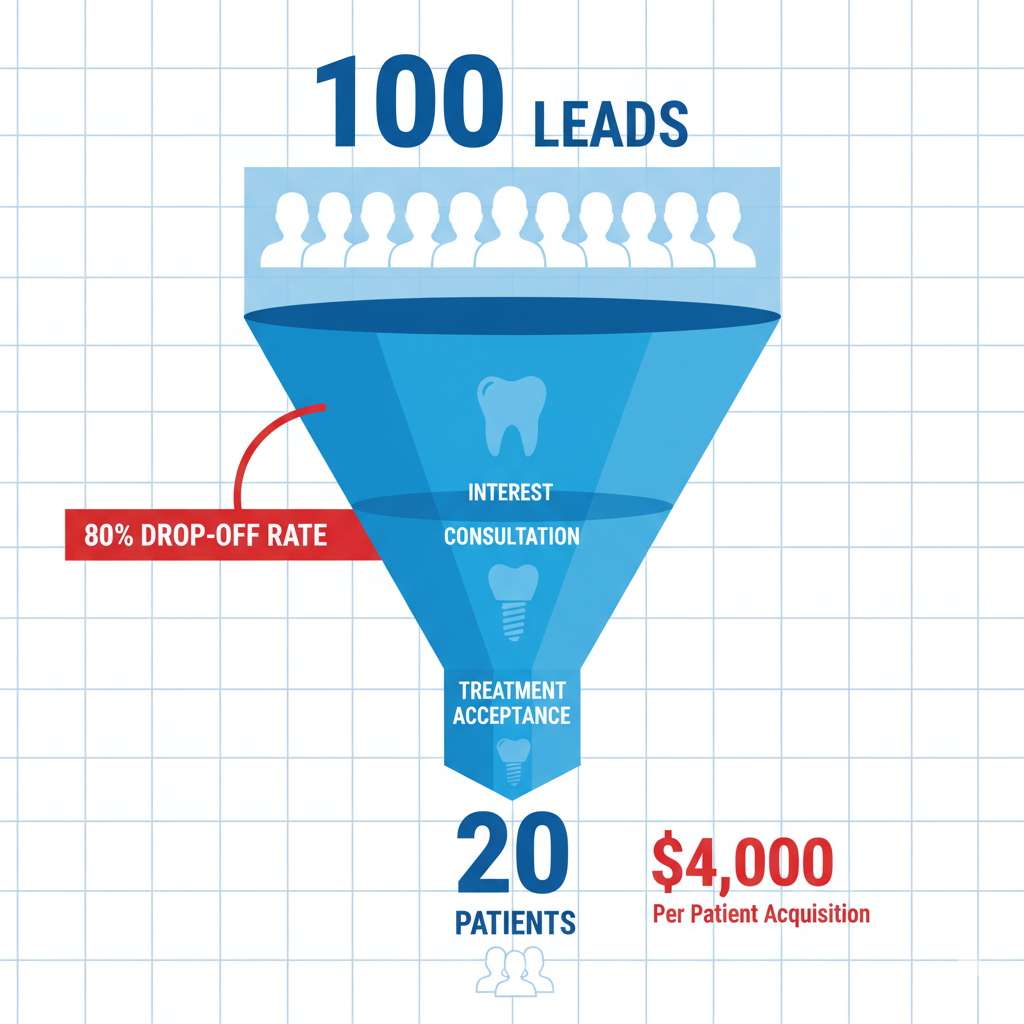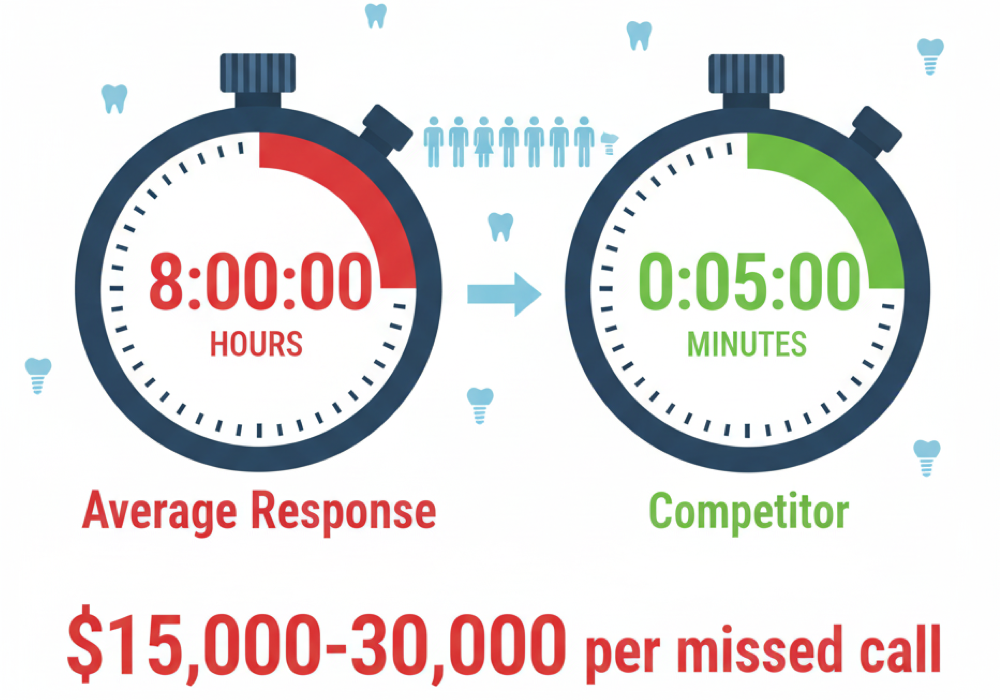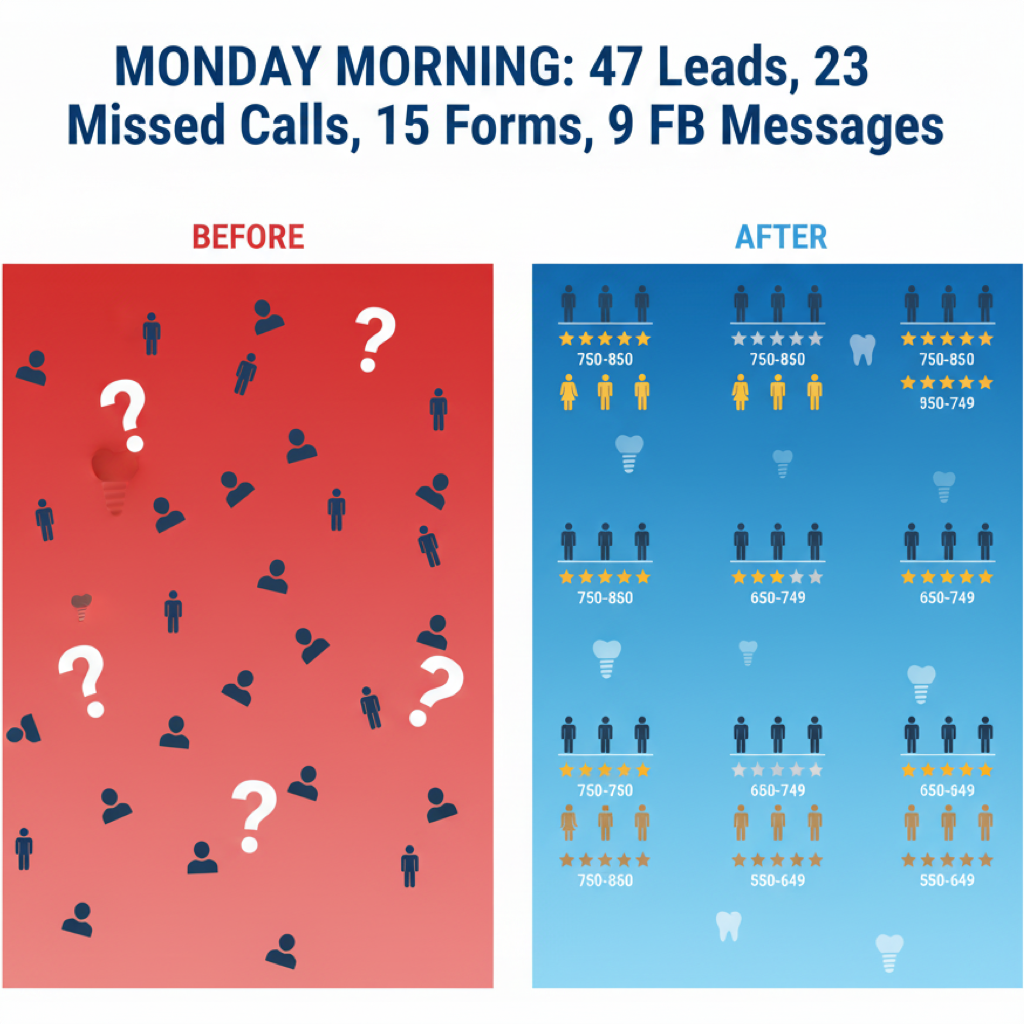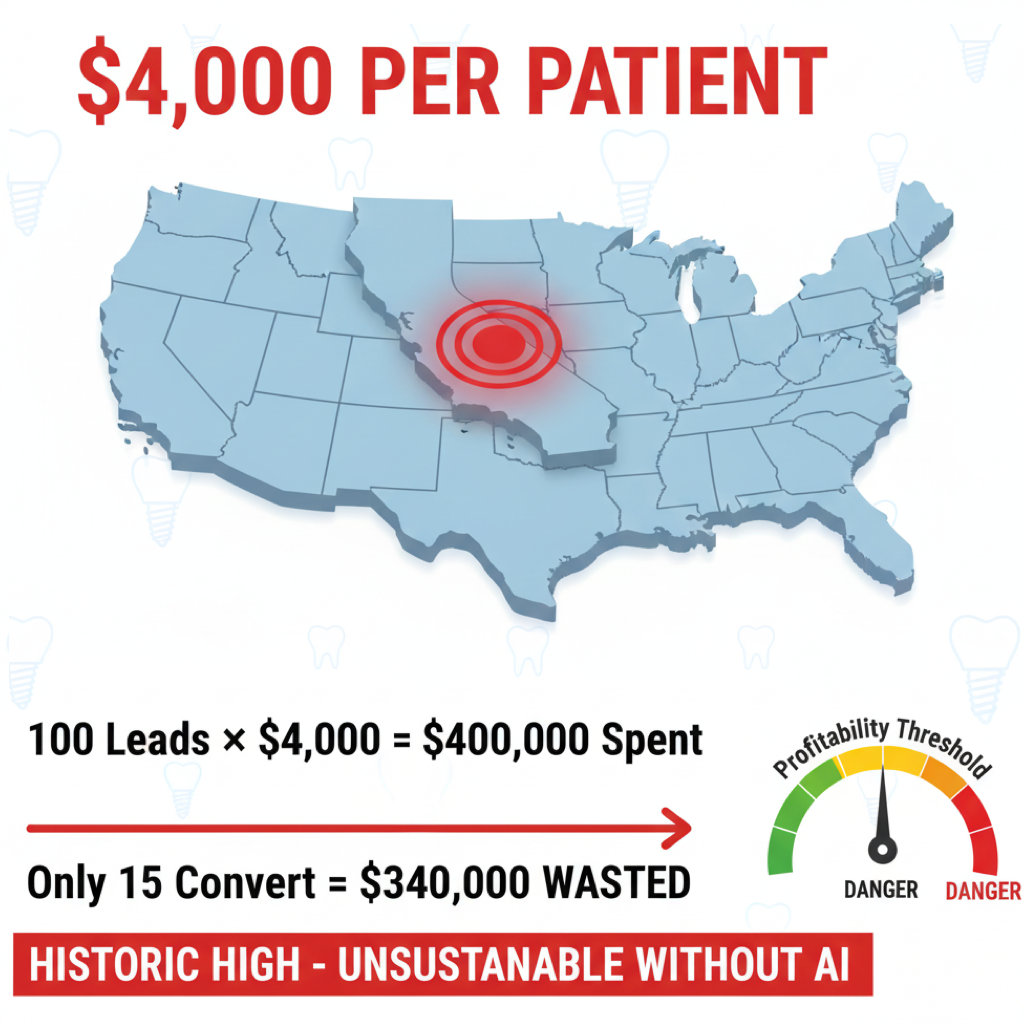Why 80% of Your Expensive Marketing Leads Never Become Implant Patients: How AI Scoring Solves the Prioritization Crisis

You're spending $4,000 to acquire a single All-on-4 patient, yet 8 out of 10 leads never make it to treatment. Sound familiar? According to dental implant marketing research from leading U.S. agencies, the problem isn't your advertising quality—it's what happens after the lead enters your CRM.
The Cost of Delay: $130,000 in Lost Revenue
The statistics are sobering: the average response time to online inquiries at dental practices exceeds 8 hours. By then, your potential All-on-4 patient has already scheduled with your competitor. Phone calls fare even worse—28% of incoming calls go unanswered, and 40% of callers can't reach a treatment coordinator.
Every missed call represents a minimum $15,000-30,000 loss in potential implant revenue. But even when contact is made, practices hemorrhage money due to poor lead prioritization.

The Paradox of Choice: When All Leads Look the Same
Picture a typical Monday morning for your treatment coordinator:
- 47 new leads in the CRM from the weekend
- 23 missed calls to return
- 15 website form submissions
- 9 Facebook inquiries
Where do you start? The traditional "first-come, first-served" approach means you could spend hours calling cold leads while a hot prospect with a 750+ credit score ready to pay for All-on-4 moves on to your competitor.

Hidden Signals of Purchase Intent
Research from Progressive Dental Marketing reveals: patients who spend over 3 minutes in a treatment cost calculator and check financing options convert 4x more often. Yet this behavioral data typically goes untracked.
Critical data points that are rarely captured:
- Time spent on pricing pages
- Selection of premium options (zirconia vs. acrylic)
- Financing calculator interactions
- Insurance information provided
- Credit scores above 650
AI Scoring: From Chaos to System
Modern AI scoring systems analyze up to 50 behavioral factors in real-time. Instead of a simple chronological list, coordinators receive a prioritized queue with conversion probability scores.
Real-World Example:
Lead A: Submitted form at 2 AM, provided only name and phone Traditional approach: First in queue for callbacks AI scoring: Low priority (Score: 23/100)
Lead B: Spent 7 minutes in calculator, explored All-on-4 with zirconia crowns, entered Delta Dental insurance, 720 credit score, calculated 24-month payment plan Traditional approach: 34th in queue AI scoring: Maximum priority (Score: 94/100)
Implementation Results: 40-Practice Network Case Study
After implementing AI-powered lead prioritization:
- Consultation-to-treatment conversion increased from 15% to 38%
- Average first-contact time dropped from 8 hours to 12 minutes
- Marketing ROI improved by 220%
- Coordinators closed 30% more cases without adding staff
Immediate Benefits of Proper Prioritization
- Hot leads receive contact within 5 minutes Instead of random processing order
- Coordinators see complete context Not just "John wants consultation" but "John explored All-on-4, has insurance, ready for financing"
- Automatic skill-based routing Complex cases to senior coordinators, simple inquiries to junior staff
- Predictive alerts System warns: "This lead profile matches 87% who went to competitors—immediate contact required"
- Reduced team burnout Coordinators work motivated leads instead of cold calling
Why This Is Critical Right Now
The cost of acquiring an implant patient in competitive markets has reached historic highs. In California, a single implant case through Google Ads exceeds $4,000. At a 15% conversion rate (industry standard), practices lose $3,400 on every unclosed lead.
AI scoring isn't just about improving metrics—it's the difference between a profitable and unprofitable practice.

The Implant Engine Effect
Leading agencies like The Implant Engine report that practices using pre-qualification and deposit systems achieve 80-90% show rates, compared to 50-60% industry average. When combined with AI prioritization, the compound effect is dramatic.
Consider this: Driven Dental Implant Marketing found that practices implementing both behavioral scoring and rapid response protocols closed $130,000 in implant cases from leads that would have previously been lost.
Your Next 30 Days
Every day without lead prioritization is lost revenue. While you're reading this article, your high-intent leads with excellent credit and All-on-4 readiness are sitting in a general queue, cooling off, and scheduling with competitors who responded faster.
Modern AI scoring widgets integrate with any CRM within 24 hours and deliver results from day one. The question isn't whether you need this system—it's how many more patients you're willing to lose while you deliberate.
The Bottom Line
According to research from Teraleads, Progressive Dental Marketing, and Driven Dental Implant Marketing, proper lead prioritization can deliver up to 20x revenue growth within 30 days. In an industry where a single All-on-4 case represents $25,000-40,000 in revenue, can you afford not to prioritize correctly?
Don't let your most valuable leads get lost in the noise. The technology exists, it's proven, and your competitors are already using it.
Based on industry research showing that practices lose 28% of calls and take 8+ hours to respond to web forms. Smart prioritization isn't optional—it's survival.